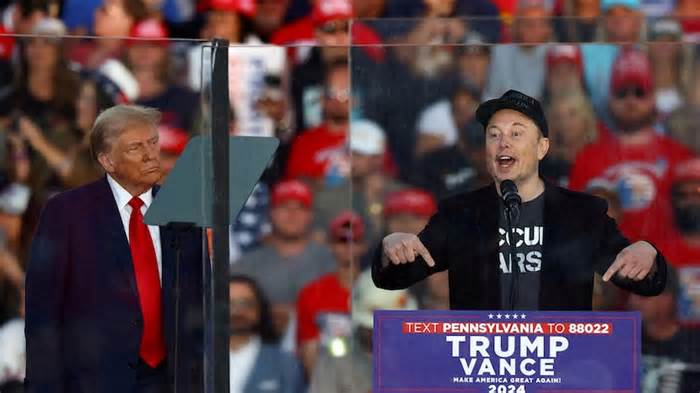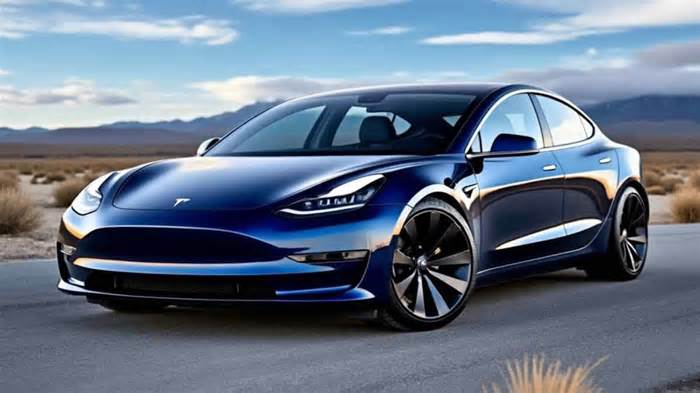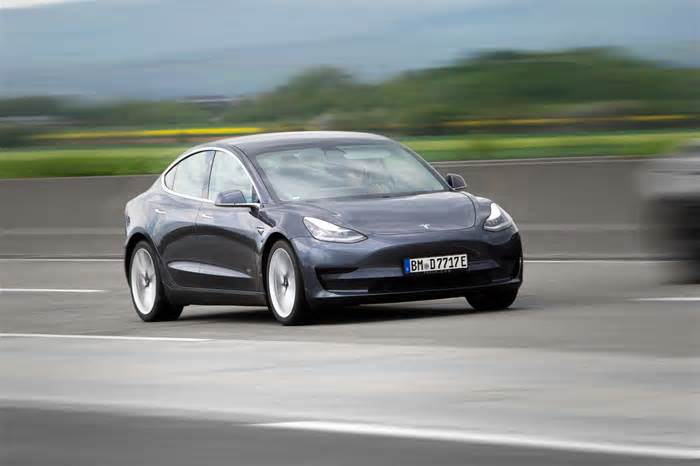
Will Elon Musk have a role in the Trump administration?
- by Dallas Morning News
- Nov 06, 2024
- 0 Comments
- 0 Likes Flag 0 Of 5

|7 min. read
Tesla CEO and X owner Elon Musk spoke at a rally for president-elect Donald Trump in Butler, Pennsylvania, on Oct. 5, 2024.
(Carlos Barria / REUTERS)
Donald Trump’s return to the White House after winning the Nov. 5 U.S. presidential election may reshape American business. Much depends on whom he appoints as deputies and cabinet members, including the role of Tesla CEO Elon Musk, and what tariffs he enacts. Following are some major issues and sectors to watch:
WHAT ROLE WILL ELON MUSK PLAY?
After some nudging from the world’s wealthiest person, Trump has said he would tap Tesla CEO Elon Musk to lead a new government efficiency commission. Musk has said at least $2 trillion could be cut from the $6.75 trillion federal budget. How that works could be a key to the next Trump administration.
Advertisement
Does efficiency mean fewer rules and regulators? Musk has been a vocal critic, for instance, of federal review of his SpaceX rocket business. That could mean less oversight of self-driving cars (a Tesla business) or rocket launches and much more.
Advertisement
The two men are not completely in sync: Trump has said he won’t let California require all vehicles in the state go electric in a decade, but Musk runs the world’s most valuable EV company. “A rising tide raises all boats. So to the extent that Elon is able to hamper the vilification of EVs by a potential Trump administration, all the better,” said James Chen, former head of policy for Rivian and Tesla. How Musk would address conflicts of interest between his interests in autos, space, health, construction and artificial intelligence is not clear.
Political Points Elon Musk’s X is putting HQ in Central Texas
Trump has pledged to be a “crypto president,” a plan that may start with replacing industry opponent Gary Gensler, the Securities and Exchange Commission chair who has sued most of the industry — including Coinbase, Binance and Kraken. Gensler’s replacement is expected to review — and potentially tear up — accounting guidance and create industry exemptions from SEC rules. Musk, too is a crypto supporter, as is Silicon Valley Trump supporter Marc Andreessen and incoming Vice President J.D. Vance.
Advertisement
Musk is also a big proponent of carbon-free energy, with Tesla being a major supplier of solar systems and batteries. Trump has promised to kill the offshore wind industry and rescind all unspent funds under the Inflation Reduction Act – Biden’s signature climate law. But Trump faces dissent in his ranks: Republican lawmakers, oil companies and others see massive red state gains from the law. Musk has played into that, building his second U.S. electric vehicle factory in Texas, for instance.
TARIFFS
Trump has proposed a 10% tariff on all U.S. imports and 60% on Chinese-made products, which if enacted would affect the whole economy by pushing consumer prices higher. The Tax Foundation, a non-partisan think tank, calculated Trump tariffs would hike taxes by $524 billion annually, shrink GDP by at least 0.8%, and cut employment by 684,000 full-time equivalent jobs potentially impacting retail workers, the largest private sector employer. He also suggested he might impose a 25% tariff on all imports from Mexico.
Advertisement
Trump’s tariff proposals could reduce American consumers’ spending power between $46 billion and $78 billion each year, according to a National Retail Federation study.
Advertisement
Apparel, toys, furniture, household appliances and footwear would be the most affected categories, the study said. Retailers would shift operations outside of China to countries including Bangladesh, India, and Vietnam. Big-box stores like Walmart and Target would face higher supply chain costs, while supermarkets like Kroger, Albertsons, and Publix, which minimally source from China, could benefit. Shipping and transportation experts say sweeping tariffs could initially bolster their business before depressing trade.
Tariffs loom over tech as well. In recent weeks, Trump has also heavily criticized the U.S. CHIPS and Science Act that has sought to partially subsidize companies building factories in the United States. Instead, he said the country should impose tariffs on chips coming into the country, especially from Taiwan’s TSMC.
Tariffs also would sharply raise costs for the renewable energy industries in the U.S., which rely heavily on Chinese components. “Trump actions without Congressional backing could include import tariffs of 10-20% (ex China), 60%-200% on Chinese imports which could impact the cost of renewable projects, particularly solar and storage projects,” according to an October research note from Bernstein.
Advertisement
And then there is the question of China’s retaliation. It is the world’s biggest soy importer and pork consumer, but it has diversified its food supply base since Trump’s tariffs in his first administration. Moreover, China failed to fully comply with an agreement to buy more U.S. agricultural goods that it signed with Trump in January 2020. Trump has vowed in his second term to impose 60% duties on imports from China, raising concerns that Beijing will retaliate by reducing imports of U.S. farm products.
OIL: DRILL BABY DRILL — BUT NOT IRAN
The United States is already the world’s biggest oil and gas producer, but Trump wants to clear away remaining obstacles. He’ll lift a freeze on new liquefied natural gas export permits, expand federal drilling auctions, speed up new pipeline permitting and try to reverse or weaken regulations aimed at cutting power plant and auto emissions. Trump’s support for the oil and gas industry could also lead him to temper his opposition to the Inflation Reduction Act, since oil companies are receiving some funding from it for carbon-free endeavors like carbon capture and sequestration.
The big oil policy wildcard is how Trump will treat rival exporters, including Russia, Saudi Arabia, and Iran. It is likely that Trump would relieve sanctions on Russian energy, but leave in place those on Iran, said Ed Hirs, an energy fellow at the University of Houston. Jesse Jones, an analyst with consulting firm Energy Aspects, expects even more. “We think that the impact of a Trump administration returning to a maximum pressure campaign on Iran could lead to a million barrel per day decrease in Iranian crude exports,” he said.
Advertisement
Please first to comment
Related Post
Stay Connected
Tweets by elonmuskTo get the latest tweets please make sure you are logged in on X on this browser.
Sponsored
Popular Post
Tesla: Buy This Dip, Energy Growth And Margin Recovery Are Vastly Underappreciated
28 ViewsJul 29 ,2024






 Energy
Energy

















